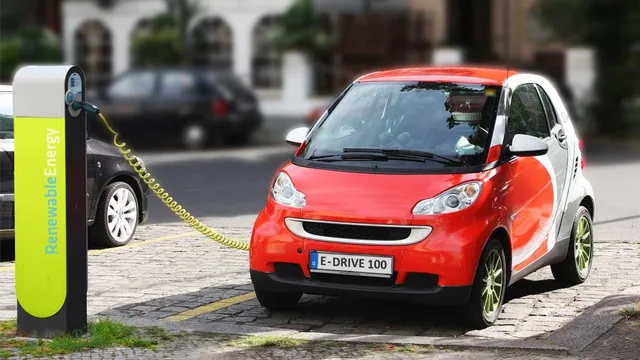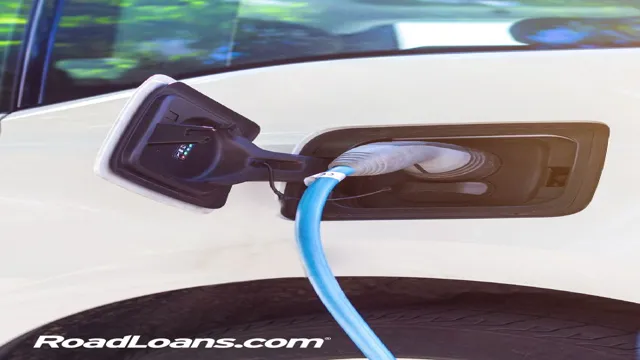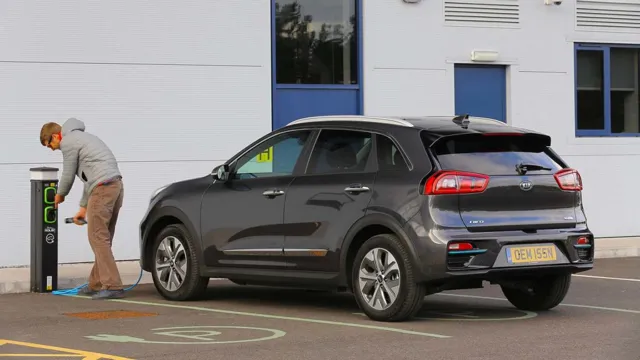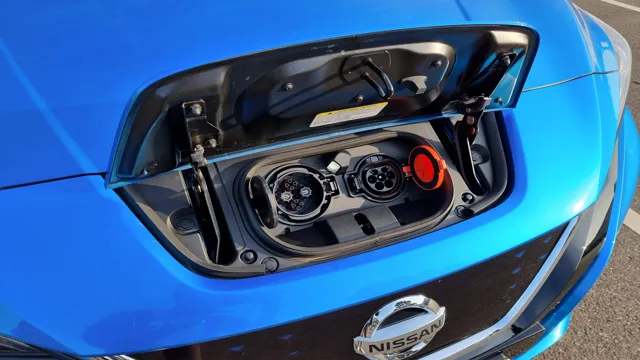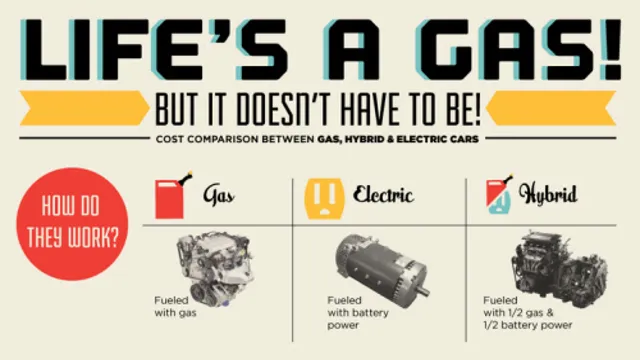Electric Cars vs Gasoline Cars: Are Electric Cars Cheaper to Maintain in the Long Run?
Electric cars are becoming increasingly popular among drivers who want a greener, more sustainable way to get around. However, many people still have concerns about the cost of maintaining an electric car. After all, these vehicles require specialized parts and technology, and it can be difficult to know what to expect in terms of maintenance expenses.
In this blog post, we’ll take a closer look at electric car maintenance costs and explore some strategies for keeping those expenses under control. Whether you’re a new electric car owner or you’re considering making the switch, this post will provide valuable insights into the real-world costs of keeping your electric vehicle running smoothly.
Overview
If you’re considering buying an electric car, you might be wondering if it’s cheaper to maintain compared to a traditional gas-powered vehicle. The answer to that is Yes! One of the primary benefits of electric vehicles is that they require much less maintenance than traditional cars. This is because electric cars have fewer moving parts compared to gas-powered vehicles, which means less wear and tear and less maintenance.
There’s no need to change oil, spark plugs, or belts in an electric car, which can add up to significant savings over time. Also, electric cars have regenerative braking systems that help to reduce wear on the brakes, saving you money on brake pad replacements. Furthermore, unlike traditional cars, electric vehicles have fewer fluids that need changing, and this translates to lower maintenance costs.
So, the bottom line is, electric cars have lower maintenance costs compared to traditional cars, making them a more economical and practical choice in the long run.
Explanation of Electric Car Maintenance Cost Savings
Electric Car Maintenance Cost Savings Electric vehicles are becoming increasingly popular due to their cost savings, convenience, and environmental benefits. Unlike gas-powered cars, EVs require far less maintenance, leading to significant cost savings over the life of the vehicle. Electric cars have fewer moving parts, which means there are fewer components to wear out or break down.
EVs don’t require oil changes, tune-ups, or transmission repairs. Moreover, electric vehicles have regenerative braking systems that help extend brake life. These factors result in lower maintenance costs for electric cars, which can save thousands of dollars over the life of the vehicle.
By investing in an electric car, you can reap long-term financial and environmental benefits while enjoying a convenient and hassle-free driving experience.
Comparison of Gasoline and Electric Car Maintenance Costs
If you’re considering purchasing a new car, you may be curious about the maintenance costs associated with gas-powered versus electric vehicles. Gasoline vehicles may require more regular oil changes, fuel filter replacements, and transmission fluid flushes, which can add up over time. On the other hand, electric cars typically have lower maintenance costs due to the absence of many traditional engine components and the fact that they run off electricity, which can be cheaper than gasoline.
However, electric vehicles may require occasional battery replacements, and these can be costly. Ultimately, the specific maintenance costs of a vehicle will depend on a range of factors, including the make and model, age of the car, and driving habits. It’s important to do your research when considering maintenance costs for a new car purchase.
Factors That Affect Electric Car Maintenance Cost
Are electric cars cheaper to maintain? The answer is generally yes. Factors that affect electric car maintenance cost include the fact that electric engines have fewer moving parts than their gas counterparts, which significantly decreases the need for regular maintenance such as oil changes, spark plugs, and filters. Additionally, regenerative braking systems are used to slow the vehicle down, which reduces wear on traditional brakes and means that they require less frequent replacement.
Despite these advantages, one thing to note is that the initial purchase price of electric cars can be higher than that of gas-powered vehicles. However, the long-term financial benefits of lower maintenance costs and fewer trips to the gas station can outweigh this initial investment. All in all, electric cars have proven to be a cost-effective and low-maintenance option for many drivers.
Cost of Battery Replacement
When deciding whether to switch to an electric car, one of the factors to consider is the cost of battery replacement. While electric car batteries are designed to last for many years, they do eventually need to be replaced. The cost of battery replacement can vary depending on several factors.
The size of the battery pack and the type of battery used can greatly affect the cost of replacement. Additionally, the age and usage of the vehicle can impact the lifespan of the battery, and therefore the cost of replacement. As with any other vehicle, regular maintenance and handling can also impact battery life and replacement costs.
It’s important to do research and consider these factors when weighing the pros and cons of switching to an electric car. But, in the long run, an electric car can save money on fuel costs and significantly reduce a driver’s carbon footprint.
Routine Maintenance Cost
When it comes to electric cars, routine maintenance costs can be significantly lower than traditional gas-powered vehicles. However, there are still factors that can affect the cost of maintaining an electric car. One of the biggest factors is the battery.
Electric car batteries can last a long time, but eventually, they will need to be replaced or repaired. Depending on the type of battery and the age of the car, this can be a significant cost. Another factor is the type of tires used on the electric car.
Many electric cars use eco-friendly tires that can wear down faster and need to be replaced more frequently. Additionally, the cost of labor for maintenance and repairs can vary depending on where you take your car. Overall, while maintenance costs for electric cars may be lower than traditional vehicles, it’s important to consider these additional factors when budgeting for routine maintenance.
Charging Station Cost
One of the factors that significantly contribute to the cost of maintaining an electric car is the charging station. Electric car owners require a reliable and efficient charging station to keep their vehicles charged and running smoothly. The cost of installing a charging station can vary significantly based on various factors, including the type of charger, the amperage, and the installation costs.
Level 1 charging stations are the most basic and affordable, but they may not provide enough power to recharge an electric car in a short amount of time. Level 2 chargers are more expensive but provide faster charging times. The installation of a Level 2 charger will also largely depend on the distance from the panel, the type of electric service, and other factors such as trenching and electrical capacity upgrades.
While the cost of a charging station can be high, it is a necessary investment for electric car owners and offers a convenient and eco-friendly mode of transportation.
Long-Term Maintenance Strategies to Save Costs
“Are electric cars cheaper to maintain?” is a common question asked by many consumers who are looking to cut down on their expenses. The answer is a resounding yes. Electric cars offer long-term maintenance strategies that can save you money.
Unlike traditional gas-powered cars, electric cars have less complicated parts, fewer fluids to replace, and don’t require oil changes. The regenerative braking system also extends the lifespan of brake pads, reducing the need for expensive replacements. Moreover, electric cars have fewer moving parts, which reduces wear and tear, leading to decreased repair costs.
Electric cars also come with warranties and incentives that cover maintenance expenses, making them an attractive choice for budget-conscious consumers. In the long run, owning an electric car can save you thousands of dollars in maintenance costs, making it a wise investment for those looking to cut down on their expenses and contribute to a cleaner environment.
Optimizing Battery Life
If you want to optimize battery life, there are a variety of long-term strategies you can use that will ultimately save you costs. One key to extending the life of your battery is to use a smart charging system that will prevent overcharging and discharging. You can also invest in higher-quality batteries that are designed to last longer and offer better performance.
Another tactic is to keep your battery cool, as high temperatures can cause damage to the cells and shorten its lifespan. You may also want to consider investing in a battery maintenance program that will help you monitor and manage your batteries more effectively. By taking these steps and staying proactive with your battery care, you can ensure a longer-lasting battery that saves you money in the long run.
Scheduled Maintenance vs. Reactive Maintenance
Scheduled maintenance and reactive maintenance are two approaches to maintenance that organizations may employ to ensure the proper functioning of their equipment and machinery. While reactive maintenance involves fixing equipment only when it breaks down, scheduled maintenance involves performing regular maintenance tasks to prevent breakdowns from occurring in the first place. While reactive maintenance may seem like a cheaper option in the short-term, over time, it can lead to increased costs due to the need for emergency repairs and downtime.
Scheduled maintenance, on the other hand, can help identify potential issues early on and address them before they cause more significant problems. This approach can help organizations save costs in the long run while also ensuring that equipment and machinery remain operational and reliable. By incorporating preventive maintenance strategies, organizations can be proactive in tackling issues before they escalate, which leads to increased savings and fewer disruptions to their operations.
Final Thoughts
When it comes to electric cars, one of the biggest advantages is their lower maintenance cost compared to traditional gas-powered vehicles. Due to their simpler drivetrains, electric cars have fewer parts that can break down or need regular maintenance. This means that electric cars are often cheaper to maintain, as they require fewer oil changes, tune-ups, and other routine services.
In addition, electric cars are generally more energy-efficient, which saves owners money on fuel costs over time. Of course, like all vehicles, electric cars may still require occasional repairs or replacements of parts. However, on average, the cost of maintaining an electric car is significantly lower than that of a gas-powered car, making it a smart choice for those looking to save money on car ownership in the long run.
Conclusion
In conclusion, while the up-front cost of an electric car may be higher, the reduced maintenance requirements and lower fuel costs make them a cheaper and more sustainable option in the long run. So, if you’re looking to save money and reduce your carbon footprint, an electric car might just be the witty and clever choice for you!”
FAQs
How does the maintenance cost of an electric car compare to a gas-powered car?
Electric cars are generally cheaper to maintain compared to gas-powered cars as they have fewer moving parts and require less frequent maintenance. Additionally, the cost of electricity to charge an electric car is usually lower than the cost of gasoline for a gas car.
What are some common maintenance tasks for an electric car?
Common maintenance tasks for an electric car include checking and replacing the battery, inspecting the brakes, and rotating the tires. However, because electric cars have fewer moving parts than gas cars, they generally require less maintenance overall.
Are there any unique maintenance considerations for electric cars?
Yes, electric cars have unique maintenance considerations such as the need to cool the battery and replace the electric motor inverter coolant. These specialized maintenance tasks can generally be completed by an authorized electric car dealership or service center.
Do electric cars require oil changes?
No, electric cars do not have an internal combustion engine and therefore do not require oil changes. Instead, electric cars may require periodic fluid replacements for the brake system or battery coolant.
